

Ohio Advocates for the Expanded Child Tax Credit



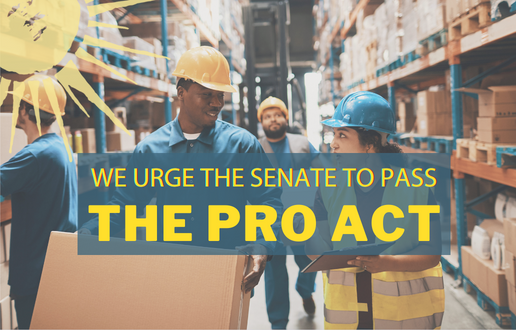

Dear Senator,
We, the undersigned national, regional, and local faith-based organizations, urge the swift passage of the Protecting the Right to Organize Act. Last year, the House of Representatives passed H.R. 842 and it is time for the Senate to send this critical legislation to President Biden’s desk.
As an interfaith community, we believe all workers should be free to act in solidarity with one another and make their voices heard. Our belief in the intrinsic worth of both work and workers leads us to strongly support the PRO Act, which will strengthen and expand the right of workers to bargain collectively, form unions, and engage in collective action without fear of retaliation from their employers. Such assurances are also better for the employers as they contribute to better productivity, mutual collaboration, and sustainability.
Our current labor laws are no longer effective in protecting the lives and dignity of workers and fall woefully short of allowing workers to effectively advocate for their needs from a position of mutuality with employers. As union membership has fallen due to counter-productive laws and amendments, inequality has skyrocketed leaving the working class with little constructive power over their own economic security; and thus, also harming sustainable business models.
The PRO Act addresses these current inadequacies by empowering workers to effectively exercise their freedom to organize and bargain. Critically, it also ends employers’ practice of punishing striking workers, strengthens the National Labor Relations Board and allows it to hold corporations accountable for retaliating against workers, and would help us collectively do better for all our needs by repealing “right to work” laws which are a harmful legacy of the Jim Crow Era.
“Right to work” laws originated in the 1940s as a way to reinforce Jim Crow by maintaining labor segregation and further exploiting workers of color. These laws allowed states to ban unions from requiring workers who benefit from collective bargaining to help pay for bargaining costs. Today, 8 of the 10 states with the highest percentage of Black residents have “right to work” laws, which prohibit fair share fees. These restrictions strip funding and bargaining power from unions which have a devastating effect on the economic stability of people of color.
Martin Luther King Jr. spoke on “right to work” laws, preaching that “In our glorious fight for civil rights, we must guard against being fooled by false slogans such as ‘right to work.’ It is a law to rob us of our civil rights and job rights. Its purpose is to destroy labor unions and the freedom of collective bargaining by which unions have improved wages and working conditions for everyone…Wherever these laws have been passed, wages are lower, job opportunities are fewer, and there are no civil rights.”
The PRO Act is more than labor reform, it is civil rights legislation. A union contract is generally one of the best tools we have to close the racial and gender wage divide. A union contract also often ensures dignity and due process for workers, regardless of where they were born, who they are, or what industry they work in. Removing barriers to organizing and bargaining is critically important to workers who have been marginalized or those working in segregated fields such as the service industry. Such barriers are forms of structural violence. Finally, expanding collective bargaining will increase protections for women, people of color, immigrants, and the LGBTQ+ community in areas where our laws still fall short. Such attention to those most marginalized benefits all of us as a community.
With all of this in mind, it is not surprising why the PRO Act, and unions in general, are popular. Research shows that more than 60 million people would vote to join a union today if given the opportunity—that is nearly half of all nonunion workers. Union density increased in 2020 amid the federal government’s failure to protect workers from the COVID-19 Pandemic. Finally, polls have found that union approval stands at 65 percent which is one of the highest marks in the last 50 years.
When left without regulation and enforcement, corporations, employers, and the government have forced the working class to accept poverty wages and stymied the enactment of necessary benefits such as paid family and medical leave. They have allowed income inequality to exponentially rise, leaving essential workers and their families with little to show for their labor.
A commitment to human dignity, worker justice, and the common good of all demands support for the PRO Act. This legislation would better the lives of tens of millions of workers and their families by creating an economy that is rooted in solidarity and supports working people as well as sustainable business models. We urge you to act and vote in the best interest of workers, employers, and the economy: Pass the PRO Act today.
In Solidarity,
ALEPH: Alliance for Jewish Renewal
Alliance of Baptists
American Baptist Home Mission Societies
American Friends Service Committee
Arise Chicago
Arizona Faith Network
Association of United States Catholic Priests
Bend the Arc: Jewish Action
CAIR Arizona
Carolina Jews for Justice
Catholic Labor Network
Christian Methodist Episcopal Church
Christians for Equality
Church World Service
Clergy and Laity United for Economic Justice
Coalition For Economic Justice
Columban Center for Advocacy and Outreach
Congregation of Our Lady of Charity of the Good Shepherd, U.S. Provinces
Disciples Center for Public Witness
Disciples Justice Action Network
Disciples Refugee & Immigration Ministries
Dominican Sisters ~ Grand Rapids
Dorothy Day Catholic Worker, Washington D.C.
Ecumenical Ministries of Oregon
Episcopal Church of New Hampshire
Farm Worker Ministry Northwest
Franciscan Action Network
Friends Committee On National Legislation
Glenmary Home Missioners
Granite State Organizing Project (GSOP)
Greater Birmingham Ministries
ICNA Council for Social Justice
Ignatian Solidarity Network
Interfaith Worker Justice – New Mexico
Interfaith Worker Justice of East Tennessee
Interfaith Worker Justice of San Diego County
Interreligious Network for Worker Solidarity
Jewish Alliance for Law and Social Action
Jewish Council on Urban Affairs
Jewish Labor Committee
Kairos Center for Religions, Rights, and Social Justice
Kalmanovitz Initiative for Labor & the Working Poor, Georgetown University
Labor-Religion Coalition of NYS
Leadership Conference of Women Religious
Maine Council of Churches
Meriden Congregational Church, UCC
Missionary Oblates of Mary Immaculate
National Advocacy Center of the Sisters of the Good Shepherd
National Council of Jewish Women
National Council of Jewish Women, South Cook Section
National Council of the Churches of Christ (USA)
National Farm Worker Ministry
National Missionary Baptist Convention of America
NCJW Chicago North Shore
NETWORK Lobby for Catholic Social Justice
New Hampshire Conference/United Church of Christ, Economic Justice Mission Group
New Hampshire Council of Churches
New Hampshire Faith & Labor Coalition
North Carolina Council of Churches
Pax Christi USA
Peace & Justice Committee, Congregation of Mission, Western Province, U.S.A.
Poor People’s Campaign
Presbyterian Church (USA), Office of Public Witness
Presbytery of Grand Canyon, Presbyterian Church (USA)
Progressive National Baptist Convention, Inc.
Reconstructionist Rabbinical Association
Religions for Peace USA
Repairers of the Breach
Sema Foundation
Society for Humanistic Judaism
Sojourners
Southwest Conference United Church of Christ
T’ruah: The Rabbinic Call for Human Rights
Tempe Interfaith Fellowship
The Episcopal Church
The Labor Guild
The United Methodist Church – General Board of Church and Society
Unitarian Universalist Action New Hampshire
Unitarian Universalist Association
Unitarian Universalist Association Pacific Western Region
Unitarian Universalists for a Just Economic Community
Unitarian Universalists for Social Justice
United Church of Christ Justice and Witness Ministries
Uri L’Tzedek: Orthodox Social Justice
WHEAT (World Hunger Ecumenical Az Task Force Inc)
Wisconsin Council of Churches
Worker Justice Wisconsin
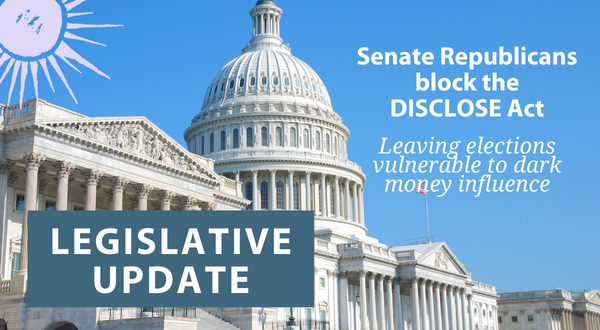

Senate Republicans Block the DISCLOSE Act, Leaving Elections Vulnerable to Influence by dark money
Thursday, September 22nd– Senate Republicans Block the DISCLOSE Act, leaving elections vulnerable to influence by dark money. The legislation (the DISCLOSE Act of 2021, or S.4822) was reintroduced to remove the influence of anonymously donated funds in politics. It would have required major political donors (those who give more than $10,000) to disclose their identity. And it would have increased the transparency of political advertisements by requiring donors that underwrite ads supporting or attacking judicial nominees, to reveal their identities.
This legislation was designed to ensure free and fair elections and protect the right of voters to have their voices heard in a truly representative, multi-racial, and multi-faith democracy.
Unfortunately, Republican Senators filibustered to block debate on the issue. Their refusal to collaborate with their colleagues across the aisle to protect our democracy from the inappropriate influence of dark money, is an affront to the Constitution. They have shirked their legislative duty and responsibility to voters. It is another disappointing example of Republican Senators prioritizing corporate interest over the people in our country.
The optics of their action suggests a concerted effort to preserve the ability to line their coffers with large sums of money without transparency. And it leaves the fairness of election results to hang in the balance as deep-pocketed lobbyists and donors enjoy an open lane to subvert the will of the people with their dark funds.
“The gall of senators who blocked even moving forward with debate on secret money and the DISCLOSE Act is a slap in the face to our democratic ideals and should leave every American deeply concerned. Without legislation like the DISCLOSE Act shining a light on secret financial donations, corporations, billionaires, and foreign interests that are seeking to influence our elections will continue to have free rein to continue their anonymous spending.”
Christine Wood, co-Director for the Declaration for American Democracy NETWORK’s Democracy Reform coalition partner
At a time when extremist legislators across the country are erecting barriers to voting and trying to sabotage future elections, Senate Republicans had the opportunity to prevent special interests, corporations, billionaires, and foreign interests from perverting elections and possibly gaining control of our government. They chose not to.
Our Constitution calls for a democratic republic where legislators are elected to craft policies and laws that serve the will of the people. These Senators prioritized greedy lobbyists, special interests, and the like who prefer to do their political maneuvering in the dark. How does giving them free reign to influence our elected officials serve the will of the electorate?
NETWORK will continue our faithful advocacy for federal democracy reforms. And we need your advocacy too! Prepare with NETWORK staff to be a multi-issue Pope Francis Voter and transform our politics! Sign up for the next workshop here. Can you invite three (3) friends to sign up, too?
Now that Congress has failed to weed dark money out of politics, It is up to the Biden Administration to protect and strengthen our democracy. President Biden can sign executive orders to help shine a light on secret money spending by contractors that receive federal dollars, ensuring transparency, so that American voters can identify the influencers of our federal elections.
How would Pope Francis Vote?
We invite you to speak out too by signing this letter
NETWORK Voter Training: learn how faith, social justice, and voting help us build anew
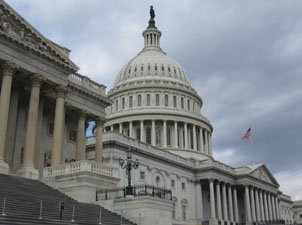

Today NETWORK Lobby for Catholic Social Justice sent a vote recommendation to Senators calling on them to vote YES on the Respect for Marriage Act. The legislation repeals the discriminatory Defense of Marriage Act and codifies the right to civil marriage, regardless of sexual orientation or race. The Respect for Marriage Act recently passed in the House of Representatives with a 267 – 157 vote.
See a copy of the letter to the Senate below:
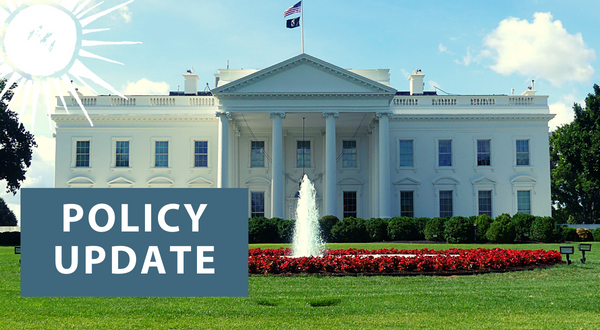

On Friday, September 9, 2022, The Biden Administration restored pre-Trump era public charge regulations when the U.S. Department of Homeland Security (DHS) issued a final public charge regulation that provides critical protections to secure immigrant families’ access to health and social services. This is a welcome update to the policy shift (flagged in March 2021) made to public charge regulations instituted in 2019 under the Trump administration
“The 2019 public charge rule was not in keeping with our nation’s values. It penalized those who access health benefits and other government services available to them,” said Secretary of Homeland Security Alejandro N. Mayorkas. (DHS)
The Trump administration upended public charge rules that had existed for 20 years prior to their one term in office. Their changes were not consistent with Catholic Social Justice or NETWORK’s Build Anew Agenda, That administration considered noncash public benefits, such as the Supplemental Nutrition Assistance Program (SNAP), Medicaid, or housing assistance, in applications for green cards or temporary visas. immigrant persons, families, and children.
The Biden administration’s reversal not only restores the policy to the pre-Trump era, it also includes an improvement sought by more than 1,000 organizations coordinated by the Protecting Immigrant Families coalition (PIF): DHS will not consider use of health care, nutrition, or housing programs when making immigration decisions. NETWORK Lobby is in the PIF coalition.
Reacting to the publication of the final public charge regulation, PIF issued the following statement:
“The final Biden public charge regulation is a major win for immigrant families. We know that anti-immigrant politicians will attack this reform through partisan litigation, but there are solid grounds for a court to uphold the rule. The new rule clarifies what is and is not considered in a public charge determination, providing assurances that eligible immigrant families can use health care, nutrition, and housing programs without public charge concerns.
“The more than 600 members of the PIF coalition are emboldened in our broader fight to repeal provisions in immigration law that are racist and discriminate against low-income people of color. Congress must strike public charge from the law and eliminate other barriers to the health and social services safety net. We will continue to push our leaders for action.” (PIF director, Adriana Cadena)
Note: This DHS decision was met with broad support by House Leadership. Ways and Means Committee Chairman Richard E. Neal (D-MA) and Energy and Commerce Committee Chairman Frank Pallone, Jr. (D-NJ) applauded the Biden Administration’s final rule restoring longstanding policy on the treatment of noncitizens seeking government assistance.
Additional background
The Trump-era regulations had a chilling effect on immigrants, causing many fearful to reach out for public assistance. An Urban Institute study examined immigrant families living with children under the age of 19 under the Trump policy in a Well-Being and Basic Needs Survey. The study found a significant preference to avoid health and social services benefits in order not to jeopardize their immigration application. This, of course, compromised their safety and well-being (and that of their children)–especially in light of the COVID-19 pandemic.
One in 5 adults in immigrant families with children (20.0 percent) and almost 3 in 10 of those in low-income immigrant families with children (28.8 percent) reported that they or a family member avoided one or more noncash public benefits or other help with basic needs in 2020 because of concerns about green card status or other immigration-related reasons. (Urban Institute)
Learn more with these resources:
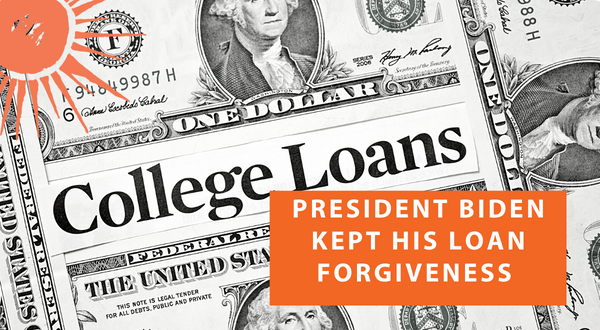

The elimination of student debt was one of President Biden’s campaign promises. Earlier this month, I was heartened to learn that he followed through with his pledge: forgiveness for some student loan debt. There are an estimated 43 million Americans who eligible to participate in the upcoming program.
In real terms, this means millions of U.S. students will see an increase in their discretionary income. They will have more freedom to save for a down payment for a house, reduce medical expenses, save for a child’s future education, open a business, and more because of this policy decision. While not all in Congress support this move, the possibility of tangible improvements for so many struggling to make ends meet at the end of the month is now encoded in law.
Key elements of the White House student loan forgiveness plan include:
Student loan borrowers can go to studentaid.gov/debtrelief to receive more details on the plan from the Department of Education.
The President’s new policy is in line with NETWORK’s mission as his action reflects Catholic Social Justice. As people of faith, we are called to live the Gospel in a broken and suffering world. With college costs, and loan borrowing to meet the high costs, soaring well beyond the means of wage-earners, and our nation still in recovery from a pandemic, we must advocate for a federal government that promotes human dignity. By providing much-needed relief to federal student loan borrowers, our nation took another step towards the common good.


In a difficult year for the care economy, there has been a small but impactful victory.
The CHIPS and Science Act of 2022, passed on July 28, includes a key caregiving provision. The provision entitled “Broadening Participation in Science” increases flexibility for individuals working in the sciences when they have caregiving responsibilities. This increased flexibility promotes gender and racial equity in STEM workplaces and ensures people have the time they need to care for their loved ones.
NETWORK has worked on the need for paid family and medical leave and other policies that support caregivers for decades. While many industries still struggle to create environments that encourage equity and diversity, women and especially women of color in STEM fields are faced with both barriers to entry and internal barriers to full participation.
This provision is a critical step towards ensuring no people in STEM fields are penalized for having caregiving responsibilities. Specifically, the provision requires every federal science agency to establish policies that allow for flexibility regarding the timing of federal research grants if a principal investigator of a grant has a caregiving role. This provision does not alter the benefit policies at any individual institution but instead removes barriers currently in place by encouraging flexibility for specifically outlined responsibilities.
Providing support to families in the STEM field is a necessary step to preventing impossible decisions between economic stability and their loved ones needs. This provision will help women in STEM fields stay working and combat biases that are present in the workplace while simultaneously encouraging more men to take on more caregiving responsibilities at home.
In June, NETWORK joined our organizational partners in sending a letter to the Conference Committee on Bipartisan Innovation and Competition Legislation in support of the CHIPS and Science Act of 2022. See the letter here:
USICA-COMPETES_ Caregiving Provision Support Letter
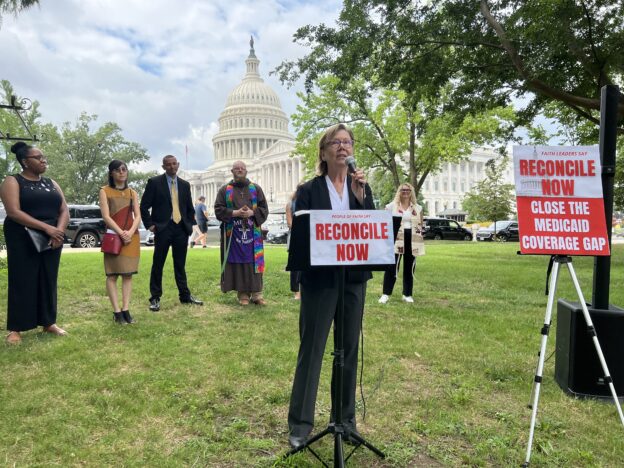

On Wednesday, July 27, Senate Majority Leader Chuck Schumer (D-NY) and Senator Joe Manchin (D-WV) issued a joint statement announcing an agreement on moving the fiscal year 2022 budget reconciliation process forward. This announcement was welcome after months of ups and downs in Senate negotiations since the House passed its budget reconciliation package last fall.
This new bill—the Inflation Reduction Act—addresses tax reform, prescription drug reform and healthcare costs, as well as climate change. If passed, this bill would be a huge accomplishment by beginning to require the wealthy and corporations to pay their fair share of taxes, while tackling the long-standing crises of healthcare costs and climate change.
Unfortunately, this package leaves out high-level policy priorities for us at NETWORK including Medicaid expansion, paid leave, funding for affordable housing, expanding the Child Tax Credit, and more. However, given the political and time constraints, this bill will do a lot to advance economic justice and address other problems in healthcare and climate.
No Republican Senators support this bill, and one Senator, Kyrsten Sinema (D-AZ), is the only Democratic member who has not yet expressed her full support for the bill. Democrats need all 50 members of their caucus to vote “yes” to pass the legislation. Senate Democratic leadership is planning a vote on this package later this week.
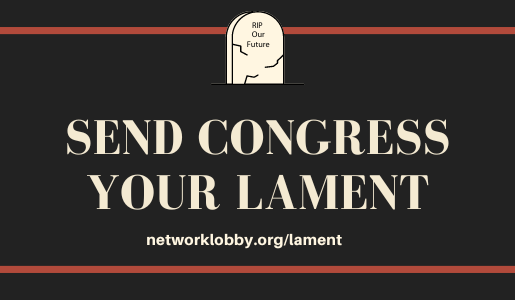

President Biden’s ‘Build Back Better Act’ would have reversed 40 years of trickle-down tax breaks for the wealthy and corporations, provided funds for healthcare, eased financial barriers to childcare and early education, invested in wildfire prevention and drought relief efforts, and more. The House passed the BBB plan, but the Senate did not.
Instead of taking moral action, the Senate prioritized the wealthy and corporations over the people and communities that would have benefited from the jobs and equitable access to life-giving resources that the transformative legislation would have provided.
Who would have benefited from BBB? Working people, school-aged children, Black and Brown people, tax payers, rural communities, the climate and ecological concerns, Tribal lands and citizens, college students, immigrants…all of us. Congress is in the final days of budget reconciliation negotiations for less impactful, piecemeal solutions as an alternative to BBB.
We lament the investments in affordable housing, support for children and families, and efforts to combat climate change missing from the budget reconciliation package. It is shameful that our country will suffer as a result of Congress’s moral failure. Join your lament with ours and sign the petition to lament the loss of transformative policy.
